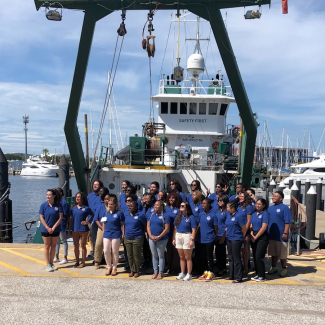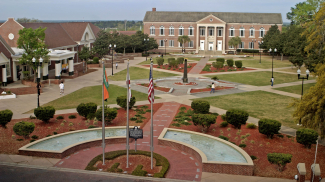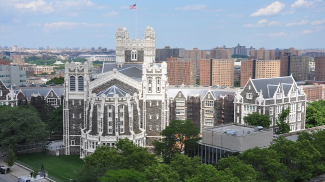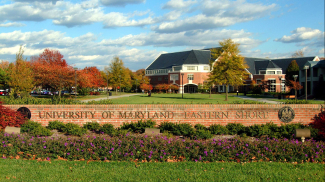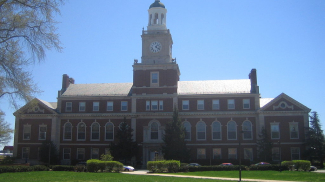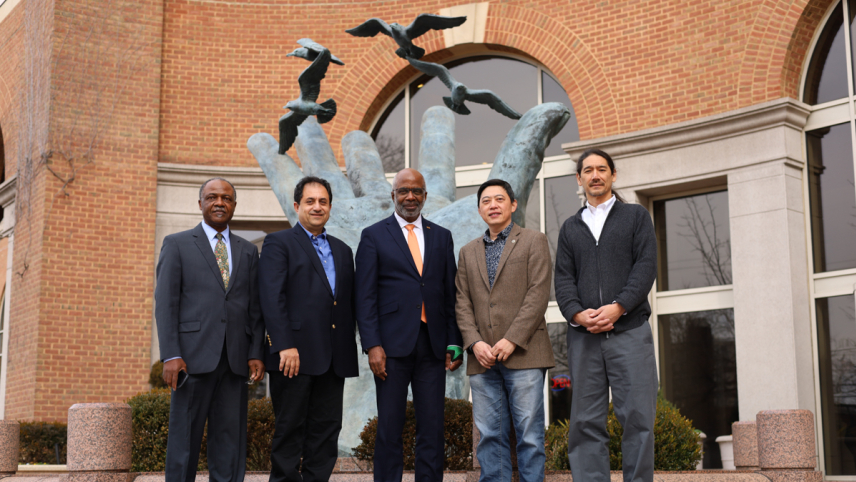
Download Image
Since the first awards were made in 2001, NOAA EPP/MSI Cooperative Science Center institutions have awarded post-secondary degrees to over 2,187 students in NOAA-mission fields. A primary long-term goal of the EPP/MSI is to increase the number of students, particularly from underrepresented communities, who attend NOAA CSC institutions and graduate with degrees that are aligned with the NOAA mission. CSC graduates are a diverse candidate pool with degrees in NOAA-mission sciences, technology, engineering, mathematics, natural resources management and policy and are eligible to successfully join the future NOAA workforce.
Each quarter, the EPP/MSI Cooperative Science Centers highlight their accomplishments, and one Center shares a feature story that spotlights a particularly notable event or accomplishment.
Of the doctoral degrees awarded in the U.S. from 2003-2019, Cooperative Science Center Institutions awarded:
54%
earned by African Americans
in atmospheric sciences.
35%
earned by African Americans
in marine science.
30%
earned by African Americans
in environmental sciences.
21%
earned by Hispanics
in atmospheric sciences.
39%
earned by Hispanics
in marine science.
19%
earned by Hispanics
in environmental science.
Current Cooperative Science Center awards
There are currently four Cooperative Science Center awards. Each CSC is a consortium of academic institutions led by an MSI. The partners can be MSIs and non-MSIs that have demonstrated education and research performance in NOAA-mission sciences. The centers train students in core NOAA mission fields: Atmospheric sciences and meteorology, earth system sciences and remote sensing technology, coastal and marine ecosystems, and living marine resources.
NOAA Center for Coastal and Marine Ecosystems II (CCME II)
Lead institution: Florida A&M University
CCME II partner institutions
-
Bethune-Cookman University
-
California State University Monterey Bay
-
Jackson State University
-
Texas A&M University Corpus Christi
-
University of Texas Rio Grande Valley
NOAA Center for Earth System Sciences and Remote Sensing Technologies II (CESSRST II)
Lead institution: City College of the City University of New York
CESSRST II partner institutions
-
Hampton University
-
San Diego State University
-
University of Maryland at Baltimore County
-
University of Puerto Rico at Mayagüez
-
University of Texas at El Paso
NOAA Living Marine Resources Cooperative Science Center II (LMRCSC II)
Lead institution: University of Maryland Eastern Shore
LMRCSC II partner institutions
-
Delaware State University
-
Hampton University
-
Oregon State University
-
Savannah State University
-
University of Maryland Center for Environmental Science Institute of Marine and Environmental Technology
-
University of Miami Rosenstiel School of Marine and Atmospheric Sciences
NOAA Center for Atmospheric Sciences and Meteorology II (NCAS-M II)
Lead institution: Howard University
NCAS-M II partner institutions
- Jackson State University
- Pennsylvania State University
- San José State University
- State University of New York at Albany
- University of Maryland Baltimore County
- University of Maryland College Park
- University of Puerto Rico at Mayagüez
- University of Texas at El Paso
The CSC awards support:
- increasing the number of post secondary graduates with STEM degrees who are qualified to solve today’s environmental and technological challenges;
- creating new opportunities for underrepresented populations to be introduced to career paths within NOAA; and,
- working collaboratively with NOAA in areas of science, resource management and social science solutions to real world problems in local communities.



